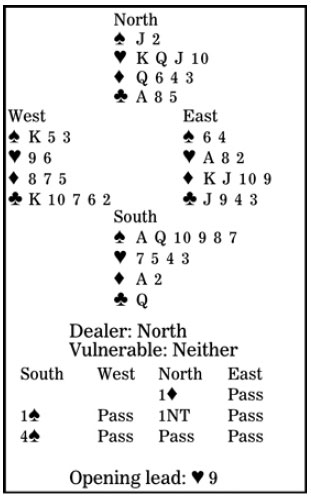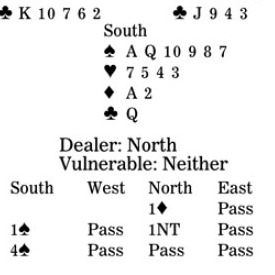The bidding often influences the play


Salvador Dali said, "The secret of my influence has always been that it remained secret." It is a secret from some bridge players that the bidding influences the play. They forget the auction when trick one begins.
In this deal, East can find the winning defense if he asks himself what key clue the bidding supplies. West leads the heart nine against four spades. How should East defend?
After North rebid one no-trump, showing a balanced hand with 12-14 points, South plunged into the contract that he hoped he could make.
West might have led a low club, but it would not have worked here. Declarer would have won with dummy's ace, run the spade jack and banked five spades, three hearts, one diamond and one club. But the heart nine was a logical lead. Unless the spade ace unexpectedly appeared on the board, West was going to have at least one trump left when in with his spade king.
The key decision then is East's. Has West led a singleton or from a doubleton? East should ask himself how West's holding would have influenced the bidding. If West has led a singleton, that would leave South with five hearts. Surely he would have mentioned the suit in the auction. Maybe not, but it was highly likely. So, West has led from a doubleton. East should encourage with his heart eight. When West gets in with his spade king, he continues with his heart six and receives a ruff. East's diamond trick will then defeat the contract.





































